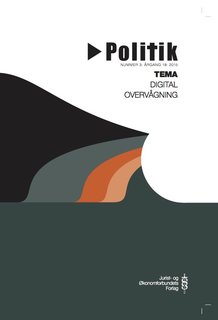En offentlig hemmelighed: Når sikkerhedspolitik går fra statsmandskunst til allemandseje
DOI:
https://doi.org/10.7146/politik.v18i3.27618Resumé
New forms of information and communication technology, surveillance and data collection have blurred the boundary between public and private responsibility: whereas it used to be only the statesman and his selected few who made decisions regarding national security, it is, in the age of unpredictability and resilience, a very wide range of both state and civilian actors who, on a daily basis, participate in the national intelligence practice. is article argues that a new security politics, driven by the notion of unpredictable risks and made possible by new data and surveillance technologies, has created a new kind of intelligence practice in which ethico-democratic questions about ownership, responsibility and control are urgent. e intelligence services’ current answer to these questions is more ‘method’ and better ‘procedures’. is is, however, not good enough. By identifying not just an ethos of rules but also an ethos of judgement in the Western tradition of state, this article recommends that we rediscover and democratise the line of thinking in our bureaucratic ethos that emphasises the ability to make (self-)critical judgements.
Downloads
Publiceret
Citation/Eksport
Nummer
Sektion
Licens
Forfattere, der publicerer deres værker via dette tidsskrift, accepterer følgende vilkår:
- Forfattere bevarer deres ophavsret og giver tidsskriftet ret til første publicering, samtidigt med at værket er omfattet af en Creative Commons Attribution-licens, der giver andre ret til at dele værket med en anerkendelse af værkets forfatter og første publicering i nærværende tidsskrift.
- Forfattere kan indgå flere separate kontraktlige aftaler om ikke-eksklusiv distribution af tidsskriftets publicerede version af værket (f.eks. sende det til et institutionslager eller udgive det i en bog), med en anerkendelse af værkets første publicering i nærværende tidsskrift.
- Forfattere har ret til og opfordres til at publicere deres værker online (f.eks. i institutionslagre eller på deres websted) forud for og under manuskriptprocessen, da dette kan føre til produktive udvekslinger, samt tidligere og større citater fra publicerede værker (se The Effect of Open Access).

